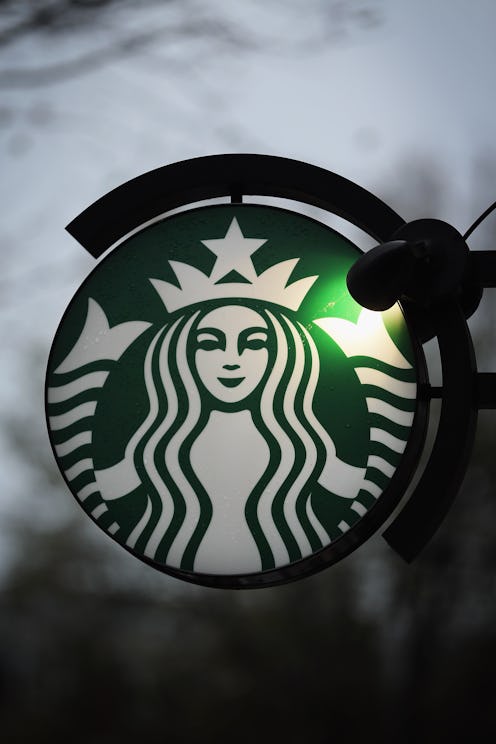Life
An Open Letter From Starbucks Details The Racial Bias Training Employees Will Take Today

On Tuesday — the day that 8,000 Starbucks locations will close in the afternoon while the company’s employees undergo racial bias training — executive chairman Howard Schultz released an open letter to Starbucks customers underlining the company’s core values and detailing what they hope to accomplish with today’s program. The training was called following the April arrest of two black men who were simply waiting for a friend at a Starbucks in Philadelphia. “The situation was reprehensible and does not represent our company’s mission and enduring values,” Schultz wrote in his open letter — and according to him, Tuesday's company-wide racial bias training and education is just the beginning of “a new chapter in [Starbucks] history.”
On April 12, Donte Robinson and Rashon Nelson sat down in a Starbucks in Philadelphia’s well-to-do Rittenhouse Square neighborhood while waiting for a friend to arrive. According to the New York Times, an employee had refused to allow the men to use the restroom while they were waiting because they hadn’t purchased anything; then the employee asked them to leave. Robinson and Nelson, still waiting for their friend, declined, at which point the employee called the police. Although bystanders told the police that the men had done nothing wrong, the police arrested Robinson and Nelson and handcuffed them. They spent several hours in jail, with no charges being filed.
A video a bystander filmed of the incident quickly went viral, leading to public outrage and calls to boycott Starbucks.
In the aftermath, Starbucks CEO Kevin Johnson and Howard Schultz both referred to the event as “reprehensible,” and the company issued a formal apology to Robinson and Nelson. In that apology, Starbucks also pledged to review the company’s policies and “continue to engage with the community and the police department to try to ensure these types of situations never happen in any of our stores.” On April 17, it was announced that Starbucks’ 8,000 company-owned locations in the United States would shut down in the afternoon on May 29 to provide racial bias education aimed at preventing discrimination to around 175,000 employees; additionally, the training will also become part of the onboarding process for new employees moving forward.
Additionally, Robinson and Nelson reached a settlement with the city of Philadelphia: Robinson and Nelson each received a symbolic payment of $1 and had their arrest record expunged, while $200,000 from the city’s Finance Department budget will be used to fund a grant program for local high school-age aspiring entrepreneurs.
“After investigating what happened, we determined that insufficient support and training, a company policy that defined customers as paying patrons — versus anyone who enters a store — and bias led to the decision to call the police,” wrote Schultz in his open letter on Tuesday. After noting that Starbucks CEO Kevin Johnson had met with Robinson and Nelson “to express our deepest apologies, reconcile, and commit to ongoing actions to reaffirm our guiding principles,” Schultz continued. “The incident has prompted us to reflect more deeply on all forms of bias, the role of our stores in communities and our responsibility to ensure that nothing like this happens again at Starbucks. The reflection has led to a long-term commitment to reform systemwide policies, while elevating inclusion and equity in all we do.”
According to Schultz's letter, today’s training — which he stresses is just the beginning of an ongoing conversation, not a one-off event — will consist of more than 175,000 employees (called "partners" in Starbucks parlance) “sharing life experiences, hearing from others, listening to experts, reflecting on the realities of bias in our society, and talking about how all of us create public spaces where everyone feels like they belong — because they do.” Concluded Schultz, “Discussing racism and discrimination is not easy, and various people have helped us create a learning experience that we hope will be educational, participatory, and make us a better company. We want this to be an open and honest conversation starting with our partners.” Additionally, he noted, the curriculum will be made available to the general public. The goal is to create “an inclusive gathering place for all.”
Hopefully, that “inclusive gathering place” will move beyond the walls of Starbucks. What Robinson and Nelson experienced is just one example of a huge list of similar events, driving home the unacceptable frequency with which they occur. In the last several months alone, a video was captured of a white woman calling the police on two black men for barbecuing on grills present in a public park in Oakland, California; a Pennsylvania golf club called the police on five black women for playing golf; and 22-year-old Stephon Clark was killed by police in his own backyard. It’s horrifically apparent that inclusive gathering places are in short supply.
One day of training won't solve the deeply ingrained, systemic problem, but it's a start. You can read Schultz' full letter here. Starbucks’ 8,000 company-owned stores will reopen Wednesday, May 30.